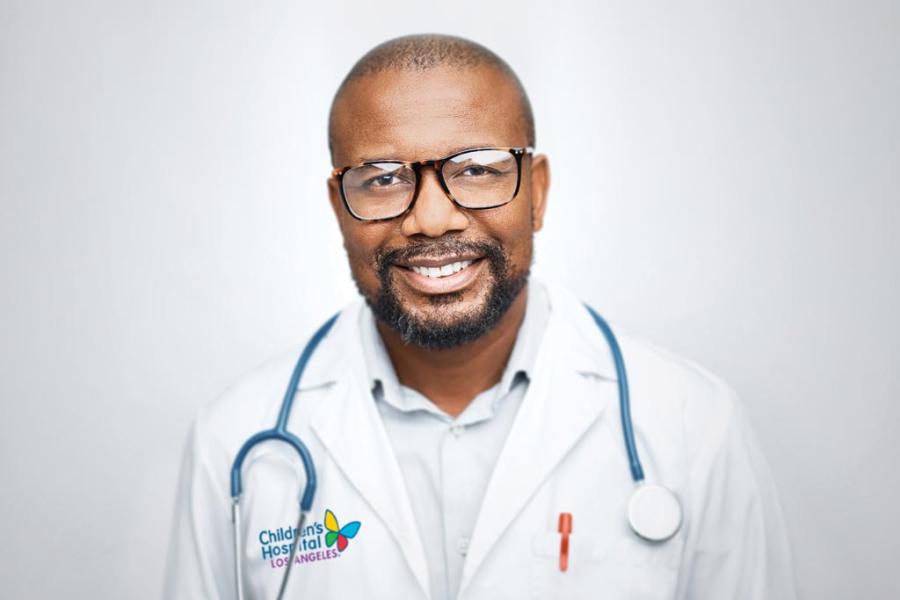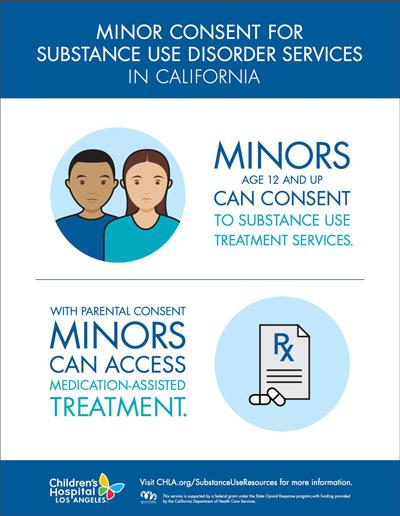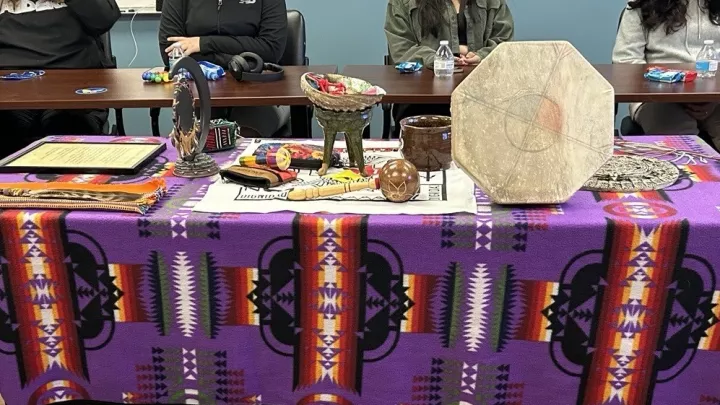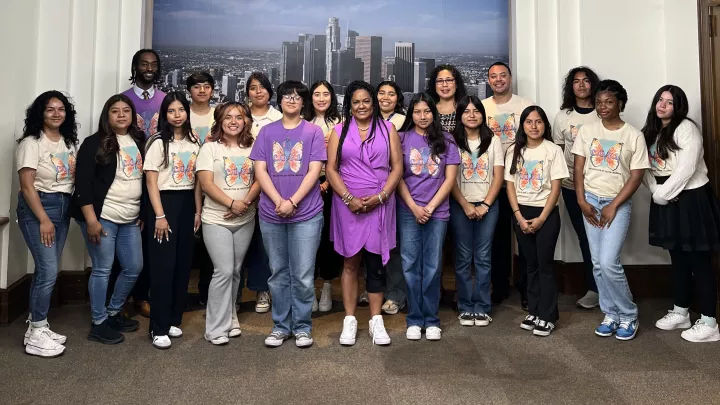Adolescent Substance Use Resources for Providers

The Children’s Hospital Los Angeles Division of Adolescent and Young Adult Medicine provides resources for the provider community to support adolescent and teen patients in addressing substance use or drug abuse. Topics include adolescent substance use, minor access to substance use treatment services, and how providers can have meaningful conversations with teens about substance use issues.
Substance Use and Adolescents
Substance use disorders are the leading cause of preventable death and disability in the United States, and most individuals begin using alcohol and other substances in adolescence. The current opioid epidemic and the legalization of recreational and medicinal cannabis is creating greater concerns about adolescent access to alcohol and other drugs and the long-term negative impact of substance use on adolescent physical and emotional development.
Opioids
Opioids are a class of drugs that include the illegal drug heroin, synthetic opioids such as fentanyl, and pain relievers available legally by prescription, such as oxycodone (OxyContin®), hydrocodone (Vicodin®), codeine, morphine and many others.
Substance Use Treatment Services
Generally, substance use treatment fits into four categories:
- Outpatient treatment – there is a wide range of approaches to outpatient treatment. Many focus on the psychosocial aspects of drug use and addiction. It can be weekly or daily, via individual or group sessions. It is important for the provider to also be aware and use harm reduction practices to help youth realistically reach their treatment goals.
- Detoxification – a medically monitored, short-term, inpatient stay of seven to 30 days meant to address physical dependence.
- Inpatient treatment – highly structured treatment with individual and group counseling, focused on the psychosocial aspects of drug use and addiction. It can be short- or long-term, anywhere from 30 days to a year in length.
- Medication-assisted treatment (MAT) – combines behavioral therapy and medications to treat substance use disorders. A commonly known example is methadone for opioid use disorder. MAT can help reduce cravings and withdrawal, and blunt or block the effect of opioids. MAT can be used in conjunction with outpatient or inpatient treatment.
Narcan
Due to the increase of opioid overdoses in recent years, providers have the opportunity to learn how to use Narcan (also known as Naloxone), a lifesaving medication that counteracts the effects of an opioid overdose. Naloxone can be delivered intranasally or injected. Almost anyone can be trained to use intranasal Narcan, and many substance use disorder providers have it on site in case of an emergency. Clients and their significant others can be trained on how to use it. It is not a drug that causes a “high,” and it is simple to administer.

Minor Consent for Services
In most cases, parents must consent to health care on behalf of their minor children. However, there are situations in which minors must or may consent for their own care, and opportunities in which other adults may consent to care on the minors’ behalf. The tools on this page summarize the rights of minors and third parties to consent to a minor’s health care in California: http://teenhealthlaw.org/consent/
Connecting With Young People Around Substance Use
The following links provide resources on how to support young people, refer to treatment, and start conversations about substance use in your practice.
CRAAFT Screening Tool: Well-validated substance use screening tool for adolescents aged 12-21.
Los Angeles County Treatment Services: Web-based tool that provides a dashboard of available substance use services throughout Los Angeles County.
Screening to Brief Intervention (S2BI): Well-validated substance use screening tool of frequency of use questions for adolescent patients.
Shift the Influence: Resources and toolkits to support positive, open conversations with youth.
System of Care Training for Youth: trainings aimed at equipping mental health professional, substance use counselors, and service providers in Los Angeles County with tools and knowledge on issues surrounding youth substance use and treatment.
Youth Screening, Brief Intervention, and Referral to Treatment (YSBIRT): Evidence-based practice to prevent and reduce risk substance use among adolescents ages 12 to 18.
More Resources
CHLA Substance Use Prevention & Treatment Program: Information on the CHLA Substance Use Prevention & Treatment Program within the Division of Adolescent and Young Adult Medicine.
Medication for Addiction Treatment (MAT) Resource Library: FAQs on medication for addiction treatment or medication-assisted treatment (MAT).
National Harm Reduction Coalition: Additional content and resource library from the National Harm Reduction Coalition, focusing on evidence-based harm reduction strategies.
National Institute on Drug Abuse: Federal agency supporting scientific research on drug abuse.
Opioids and Adolescents Research Brief: Survey findings from recent research with health care providers in California
Opioid Overdose Prevention Toolkit: Includes strategies for health care providers for developing practices and policies to help prevent opioid-related overdoses and deaths.
“Talk. They Hear You.” App: Free mobile app for parents/caregivers with tools and information on talking with their children early about the dangers of alcohol.


